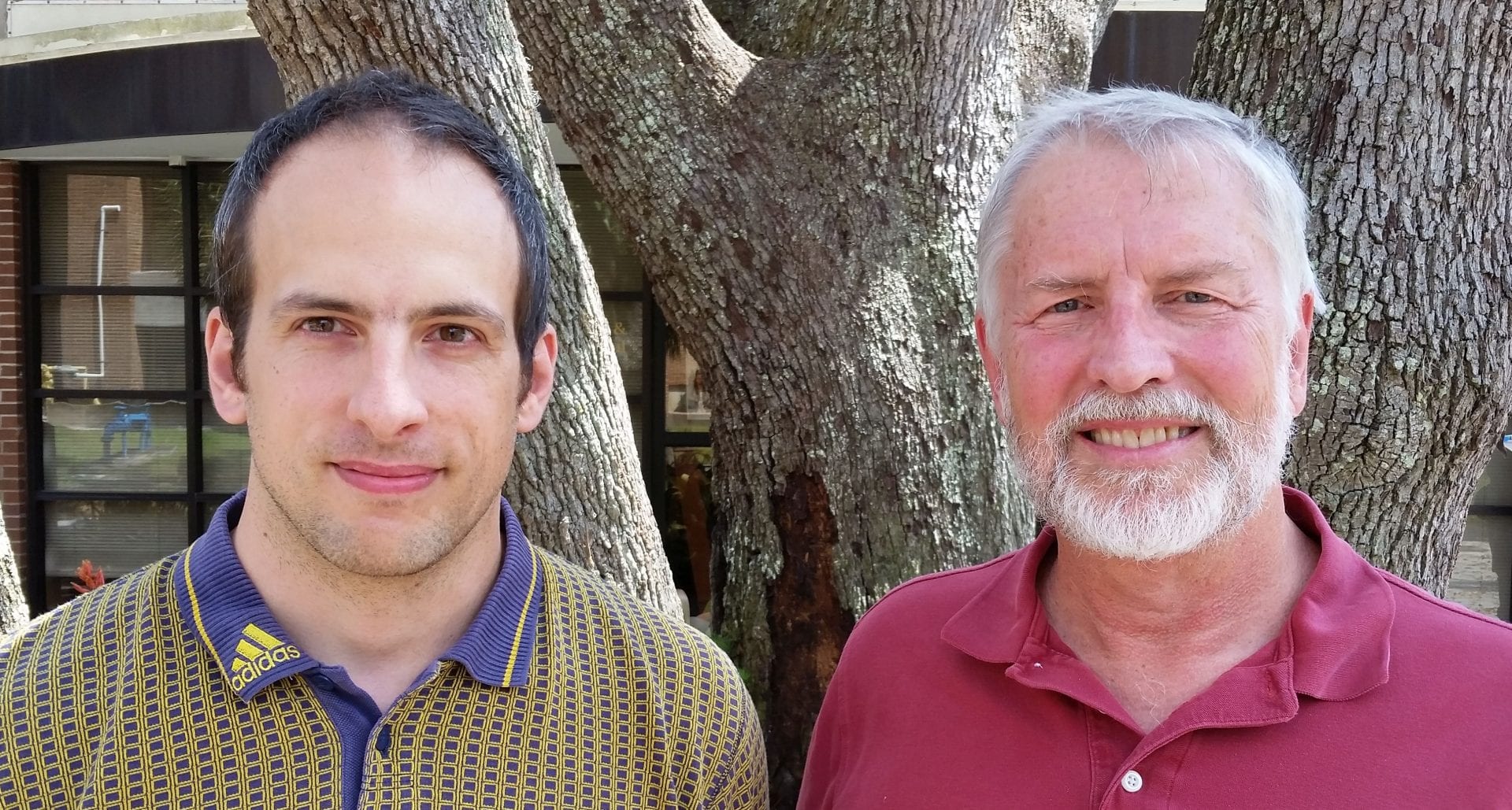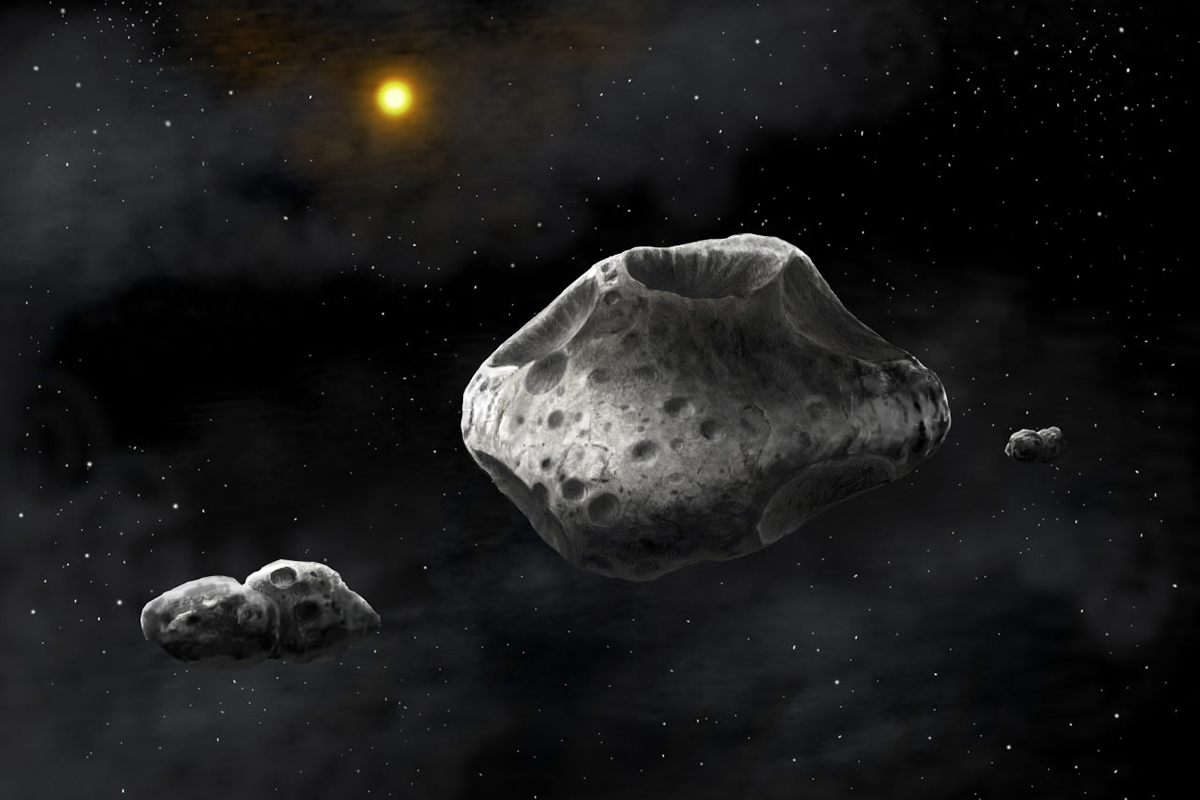UCF Physics Team Finds Solution for Celestial Radiation

UCF planetary sciences doctoral student Leos Pohl and UCF Physics Professor Dr. Dan Britt.
University of Central Florida Department of Physics Professor Dan Britt, Ph.D., and UCF planetary sciences doctoral student Leos Pohl believe there is an alternative to battling radiation in space.
Research of the UCF scientists was recently featured in a New Scientist article, ‘Asteroid clay is a better space radiation shield than aluminium,’ published March 14, 2017. The article referenced Britt and Pohl’s research study ‘The radiation shielding potential of CI and CM chondrites’ published in Advances in Space Research.
According to the New Scientist article by Abigail Beall, radiation from cosmic rays is one of the biggest health risks astronauts will face on long space missions, such as a proposed trip to Mars or settlement on the moon.

Photo provided by Danielle Futselaar from the SETI Institute: Space rock clay is rich in hydrogen, which blocks harmful cosmic rays.
Aluminium shields commonly used for protection and currently used for short missions would be too expensive to ship, the article explains.
According to Pohl and Britt, asteroids could provide a solution.
Pohl and Britt found that clays extracted from some types of asteroids are up to 10 percent more effective at stopping the high-energy charged particles given off by the sun and other cosmic bodies.
Britt believes for a long-term presence on the moon or Mars, we will need to use materials found in space.
Read more about the importance of this discovery here.
